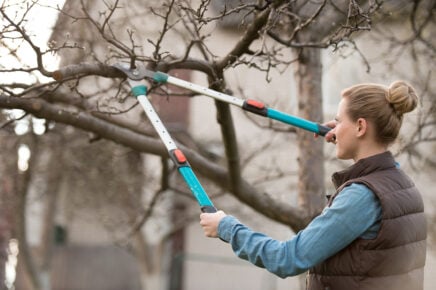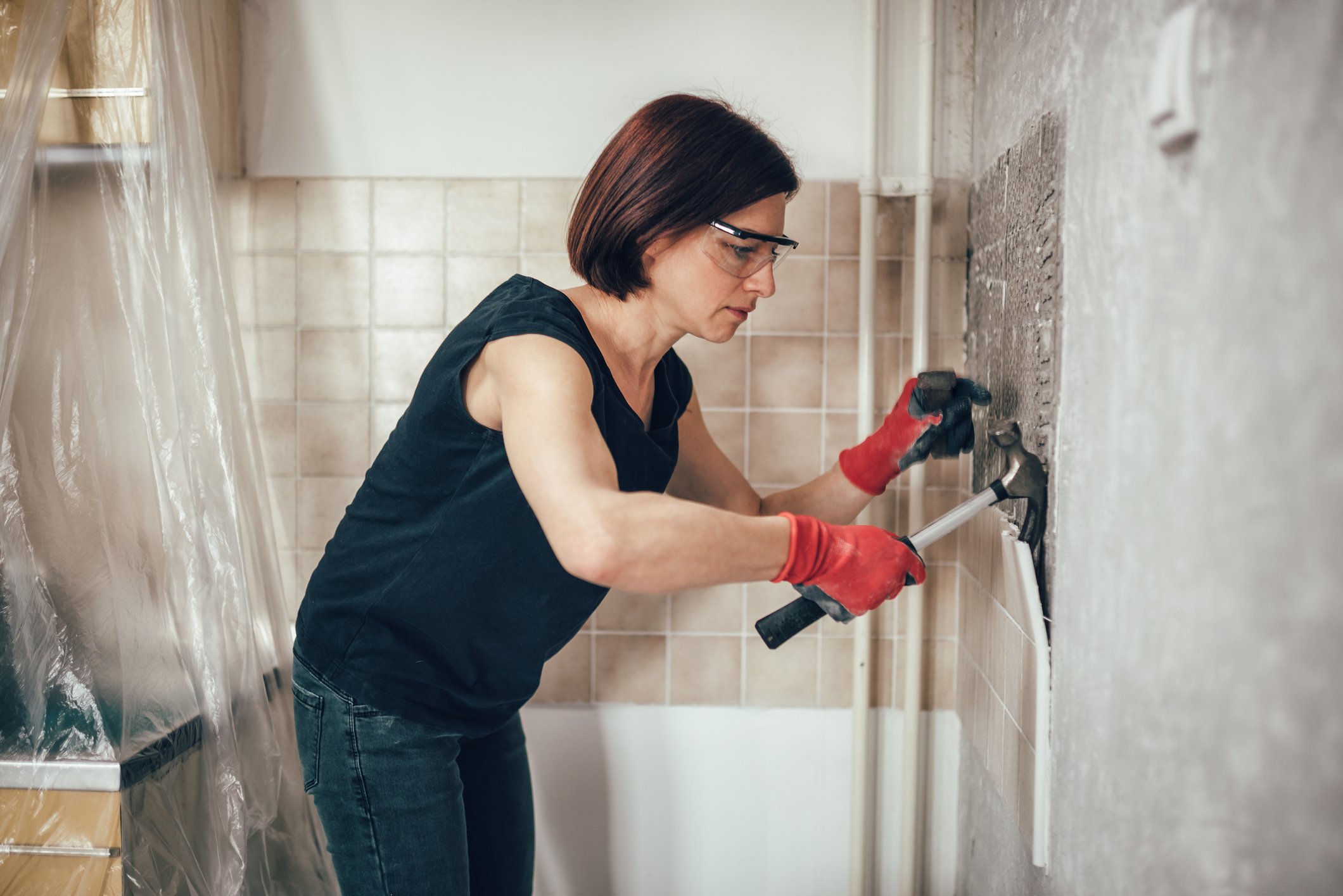With higher home prices and mortgage interest rates squeezing Canadians’ budgets, more homeowners are looking to renovate their homes instead of moving.
On average, Canadian homeowners said they spent $12,300 on home renovations in the last 12 months, according to the HomeStars 2023 Reno Report. Meanwhile, in the year ahead, Canadians estimated they’d spend slightly less — $10,264 — due to economic conditions, according to the report.
“Canadians are still optimistic about renovations in general. Only one in three homeowners we surveyed were putting renovation plans on hold this year due to the increase in interest rates,” HomeStars CEO Shir Magen said in the report.
Before launching into a project, it’s critical to understand which home improvements offer the best return on investment (ROI) so your time and dollars are invested strategically.
Here are some popular home renovation projects that tend to recoup their cost in resale value while also adding to your quality of life.
1. Kitchen renovation
Estimated cost: $21,000 to $50,000
Typical ROI: up to 100%
Kitchens have a way of bringing everyone together, and renovating yours can add value while making it more functional and modern.
The typical kitchen remodel costs an average of $21,000 to $50,000, according to the Home Reference Guide 2023 from CDC Inc., an Edmonton, Alberta-based appraisal valuation and advisory firm. Kitchen remodels typically net an ROI of 75% to 100%, CDC reported.
Whether you’re doing a complete rehaul or looking to do a simple refresh of outdated colors and appliances, a tastefully done kitchen remodel is a wise investment, says Curtis Mercer, president and owner of K & P Contracting in Flatrock, Newfoundland and Labrador.
Tips to maximize ROI
- Focus on functionality: Invest in durable and easy-to-maintain cabinets, countertops, appliances and fixtures. Instead of choosing quartz or granite, consider solid surface alternatives, like Corian countertops, which are more affordable but still durable, Mercer suggests.
- Update key fixtures: Replace outdated sinks, faucets, cabinet hardware and lighting for an instant facelift. Painting your kitchen cabinets can give the space a fresh look without the big price tag.
2. Bathroom remodel
Estimated cost: $7,500 to $26,500
Typical ROI: up to 100%
Bathrooms are another space where homeowners spend a good deal of time. That’s why bathroom remodels can add serious bang for your buck on resale.
A typical bathroom renovation can cost an estimated $7,500 on the low end up to $26,500, but, like kitchens, these projects recoup 75% to 100% of their cost on resale, according to the CDC report.
Tips to maximize ROI
- Replace outdated fixtures: Choose water-saving toilets, faucets, tubs or showers to improve efficiency and potentially cut costs on utility bills.
- Choose timeless finishes: Select classic or transitional tile patterns, neutral colors and high-quality materials that might appeal to future buyers.
3. Basement finishing
Estimated cost: $38.62 to $73 per square foot
Typical ROI: up to 75%
Unfinished basements have a lot of potential. Finishing this bonus space can increase your livable square footage, which adds value to your home and gives your family more room to entertain.
It costs about $38.62 to $73 a square foot to finish a basement, yielding a 50% to 75% ROI, according to CDC’s guide. In other words, it would cost you $38,620 to $73,000 to finish a 1,000-square-foot basement.
Tips to maximize ROI
- Waterproof the structure: If your basement is below ground, ask how your contractor plans to waterproof the space or address structural or moisture issues before work begins.
- Create defined spaces: Map out how you plan to use the space and consider if you’ll need some areas to be walled in (if you want a guest room or home office, for example).
- Focus on safety: You’ll need a fire exit and proper ventilation. Work with your contractor to ensure they follow local building guidelines and size and install egress windows properly.
4. Exterior doors and windows
Estimated cost for an exterior door replacement: $730 to $4,000
Estimated cost for window replacement: $800 to $1,640 per window
Typical ROI: up to 75%
New exterior doors and windows can enhance curb appeal, energy efficiency and comfort. Mercer says that homeowners who plan to stay put and need to replace old windows and doors will also get a good ROI if they choose energy-efficient materials.
“Things that you can do to your home or while you’re doing other renovations or remodels that add a little bit of cost up front but decreases your annual energy consumption or your operating costs over time … [are] insulation upgrades, air sealing, better windows and doors and these types of things,” he says.
Replacing an exterior door is about $730 to $4,000, while window replacement runs $800 to $1,600, depending on materials and size, according to the CDC report. The good news is a new entry door and windows could earn you an ROI of 50% to 75%, CDC states.
Tips to maximize ROI
- Choose energy-efficient models: Windows and doors with low-emissivity (low-E) glass and Energy Star certification can make your home’s temperature more comfortable and cut down on energy bills.
- Opt for durable materials: Storm-proof materials, like fibreglass or composite for doors, and vinyl or aluminum framing for windows, can withstand harsh weather conditions.
How to hire a renovation contractor
The final cost of your home improvement projects will depend on labour charges. If you plan to hire a pro to do the work, these tips from Mercer can help you make a sound decision.
- Get multiple price quotes. Compare pricing and services from at least three different contractors. If plumbing, electrical or other specialty services are required, you might need to hire those professionals separately.
- Check their credentials. Contractors should have a valid business license and professional liability insurance. It’s also a good idea to read online reviews and request several references from recent clients you can personally contact.
- Get a detailed contract in writing. Once you’re ready to sign a contract, make sure the contractor clearly outlines the scope of work, materials to be used, payment schedule, and timeline for completion.
- Leave wiggle room in your budget. Renovation projects usually have unforeseen hiccups. Plan to budget an extra 20% for unexpected repairs. If you have money left over, you can always increase the scope or upgrade certain materials.
- Ask about warranties and guarantees. Ensure the contractor’s warranty is clearly defined and you understand what it does (and doesn’t) cover. Ask if there’s a time limit (up to a year, for example).
DIVE EVEN DEEPER

Home Improvement Project? 5 Questions to Ask Before You DIY
Before deciding that you’ll DIY, consider the time, expertise and costs involved to complete your project — and how you’ll pay for it.

7 Home-Hardening Tips to Protect Your Property From Wildfires
Fire safety experts offer tips on how to mitigate fire risk to your home so you can prepare before wildfire season gets underway.

Should You Use a Personal Loan for Home Improvements?
Personal loans are funded quickly and feature lower interest rates than credit cards, but may be too restrictive for major home improvement projects.

3 Ways to Create a Drought-Resistant Yard You’ll Love
Adding mulch, choosing native plants and installing alternative ground cover are ways to help your yard flourish without wasting water.

